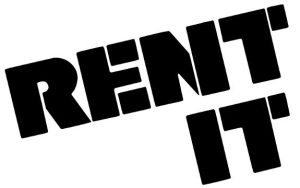How to Select the Right Machine for the Job
10 Factors to Keep in Mind When Choosing the Proper Equipment to Get the Job Done!
As you’re preparing to bid on or start a new job, regardless of its nature, size, anticipated time length and other varying degrees, one question always remains the same: what equipment do I need to get the job done?
 Sometimes you must sort through your fleet of equipment to choose the right machine(s) from a variety of options. On the other hand, some jobs may be fit for only a single machine – but one with a variety of attachments. Either way, it is ultimately your decision to utilize the appropriate machine(s), combined with corresponding tools and attachments, to complete the job at hand in a manner that is the safest, most efficient and highest quality possible.
Sometimes you must sort through your fleet of equipment to choose the right machine(s) from a variety of options. On the other hand, some jobs may be fit for only a single machine – but one with a variety of attachments. Either way, it is ultimately your decision to utilize the appropriate machine(s), combined with corresponding tools and attachments, to complete the job at hand in a manner that is the safest, most efficient and highest quality possible.
To help maneuver through these types of initial – and sometimes difficult – questions and decisions, it is best to keep a handful of variables in mind.
Other than experience, obvious factors and, perhaps, a simple gut feeling, consider the following – these considerations will help you choose the appropriate machine for the job and ensure a desirable outcome.
- Time: How long will it take for you to complete the project? How many machines and/or operators are needed to complete the project in a timely manner?
- Transport: What is required to transport the job’s necessary machine(s) and attachments? How many trailers and/or trips will be needed to accommodate the required equipment?
- Fuel: What will the anticipated fuel consumption be on each machine? How much fuel will be needed to haul equipment for the necessary number of trips?
- Maintenance: What maintenance will be required for the machines on the job? Keep in mind that maintenance will likely increase as the number of machines on the job increases. Check any vital components – like filters, lubricants, hoses and belts, for example – prior to the job’s start-up to prevent having to perform routine maintenance or face unexpected problems on the jobsite.
- Operators: How many operators are needed? Are you going to hire an operator for each machine, or have one operator run all machines? This decision can greatly depend on both your budget as well as whether or not any of your machines need to be used simultaneously.
- Insurance: What type of insurance is needed for the job? This will depend on the equipment used and your number of employees, as well as their tasks.
- Wear & Tear: How are you going to tackle the job so that your equipment and attachments suffer the least amount of wear and tear?
- Attachments: What attachments are needed to get the job done? This will depend on the type of equipment used. Keep in mind that utilizing a variety of attachments, as opposed to using a variety of machinery, can save you money and provide quality performance.
- Time Period: How long do you anticipate it will take to complete the job? At what speed must you work to complete the job in the estimated time period? Don’t forget to factor in travel time and unexpected setbacks.
- Rent: If, after considering all of the above options, you either don’t have the proper equipment or do, but know of a piece of equipment or attachment that could perhaps work better, always consider renting.
Ultimately, your goal is to complete every job safely, successfully, timely, within budget and, of course, to make a profit. These factors can help facilitate the planning process to ensure a positive, favorable outcome.
Keep Tracey Road Equipment in mind for all of your heavy equipment purchases, renting, attachment, service, hydraulic, repair and maintenance needs. We’re here to help you get the job done!
